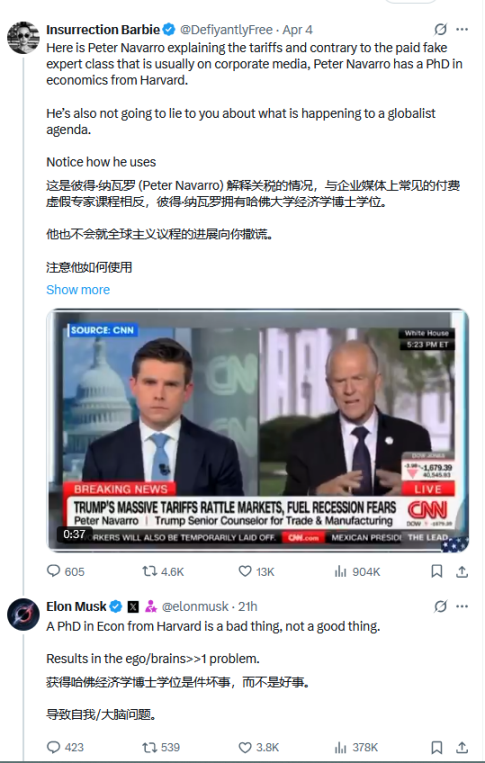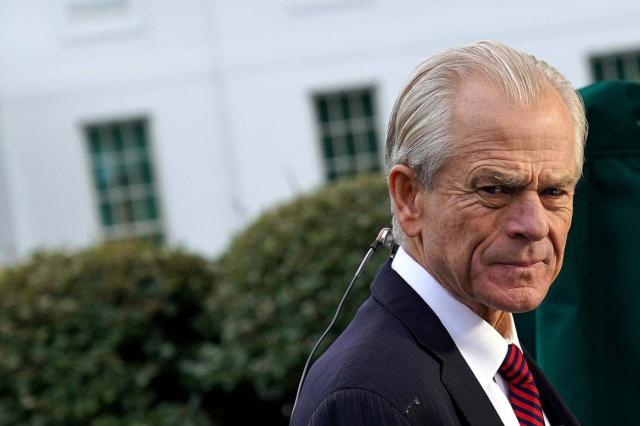Written by: Zhang Yaqi, Wall Street Insight
After the Trump administration fully launched the "largest tariff policy in a century," Musk suddenly opposed trade barriers, calling for a zero-tariff free trade zone between the US and Europe, creating a sharp divergence with the Trump administration's tariff policy.
In response, Trump administration's chief trade advisor Peter Navarro strongly rebuked Musk. He pointedly stated on Fox News on the 7th:
"Elon is doing well in his Doge position, but we understand what's happening here. Elon sells cars, he's just protecting his own interests."
Navarro emphasized that although Tesla's cars are produced in a factory in Texas, "many of their parts come from regions like Mexico and Japan," which makes the company particularly vulnerable to the government's new tariff system.
Trump's Tariffs Caused Wealth Reduction, Musk Publicly Counterattacks
After Trump announced the tariff plan last week, Musk lost approximately $18 billion in wealth during the US stock market crash.
On April 6th, Musk suddenly broke his silence on trade policy and publicly criticized Navarro, saying "having a Harvard economics PhD (referring to Navarro) is a bad thing, not a good thing," he wrote on X, suggesting such a background leads to more self-inflation than wisdom.

More notably, according to Bloomberg, Musk subsequently attended an Italian political event via video on Saturday, where he publicly called for the elimination of trade barriers.
"In my view, Europe and the United States should ideally move towards a zero-tariff state, effectively establishing a free trade zone between Europe and North America," Musk stated at the event.
This stance stands in stark contrast to the tariff policy recently announced by the Trump administration, demonstrating a clear divergence on trade issues for Musk, who was once considered a Trump ally.
Musk previously acknowledged on the X platform: "To be clear, tariffs will affect the prices of parts from other countries in Tesla cars. The cost impact is not insignificant." He wrote in another post: "It's important to note that Tesla is not unscathed here. The impact of tariffs on Tesla remains significant."
Mark Williams, a finance professor at Boston University's Questrom School of Business, previously told Newsweek:
"If Trump's tariff war triggers a comprehensive recession, the demand for any car, whether Tesla or Ford, will decline. The tariff war is a high-risk gamble, betting that our largest trading partners will submit and accept trade conditions favorable to the US but detrimental to them."





